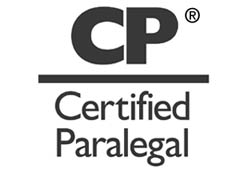Last week I attended Solo Practitioner Boot Camp at Atlanta’s John Marshall Law School, hoping to glean a few helpful ideas to pass along to my solo attorney clients. What I got was five hours chocked full of great information to share with you. I will just be hitting the high points as I condense the entire day into one blog post.
Keep your costs down and appearances up.
Office space and location are at the top of the list for both cost and appearance. This point was first made by speaker Saam Seyed Ghiaasiann, then reiterated throughout the day. Several of the solo attorneys used fully-equipped office rentals which provide a professional office address for mail, phone answering and messaging. They can use the office space for a certain number of hours per month for client meetings. Jared Correia has written a great post on the pros and cons of the Sometime Office. Speaker, Matthew Schwartz kept office costs down by subletting from a firm which also gave him advice and referrals. Another solo attorney received free rent in return for renovating the office space. The most frugal office solution was from a solo practitioner who worked from home, used a post office box address and met his clients at their offices.
Network with other lawyers and have mentors.
Build a support system of people you can call on for advice and nurture those relationships. The most entertaining and energetic speaker of the day was Spencer Aronfeld, author of Make it Your Own Law Firm. His number one piece of advice to solo attorneys was to make friends with other attorneys. They will become a source of referrals for you and some will eventually become judges. Almost every speaker had mentors, more experienced attorneys they could call on with questions. While most large law firms have mentoring built into their associate programs, solo practitioners have to seek mentors out on their own. It was encouraging to hear how willing the experienced attorneys were to help out their younger colleagues. Some bar associations also have mentoring programs based on practice areas.
Be organized and be intentional.
Shatorree Bates spoke about business savvy for the solo practitioner. You must have a business plan in place and be prepared to run a business as well as practice law. The number of solo law practices has grown tremendously in the new legal market and so have the resources to help them. Vanessa Kosky sang the praises of the Law Office Management program of the State Bar of Georgia which helped her set up the business side of her solo practice.
I follow several blogs that provide volumes of wisdom for someone just starting a solo law practice:
- www.masslomap.org Lots of great information on Law Office Management Assistance Program including a start-up kit.
- solopracticeuniversity.com Provides information and resources to help you learn what law school did not teach you – how to actually practice law.
- myshingle.com If you are thinking about going solo, put this one on your favorites menu. You will receive the inspiration and encouragement you need in addition to the practical resources.
Use technology and do what you love.
Putting your practice in the cloud and will increase your productivity and help you contain costs. On her website, lawpracticestrategy.com, Donna Seyle points out that through the use of technology and other trends, “Solo and small firm lawyers can level the playing field with big law, expanding the ways in which they deliver legal services and ensuring the success and sustainability of their practices.”
Using technology effectively and efficiently can also help you narrow your solo practice to areas you are most passionate about. You can reach your target clients through your website and by blogging about your favorite practice area. Learning to delegate tasks to a virtual paralegal will ensure that you spend your time doing the things you enjoy most in your practice.
Final Recommendations
A few quick pointers from conference speakers:
- Michael Monahan : Pro Bono provides excellent means to learn and develop as a lawyer.
- Wendy Ellin : Treat your email inbox as a loading dock, not a storage unit.
- Peter Acker: Be confident.
- Steven Bontempi: Find a need and fill it.
- Ed Alden: The best risk management tool is to carefully choose your clients.
- Monique Henderson: Use social media to establish your brand.
I hope you found some useful information . If I can assist you in your solo practice please contact me, Misty Sheffield. I am easy to reach and I would love to hear from you.
Photo by Symlinked
 Misty L. Sheffield is a freelance paralegal helping solos and small law firms in civil litigation. She has been assisting attorneys for over 12 years.
Misty L. Sheffield is a freelance paralegal helping solos and small law firms in civil litigation. She has been assisting attorneys for over 12 years. 



Misty, these are great resources for many legal professionals. Thanks for sharing!